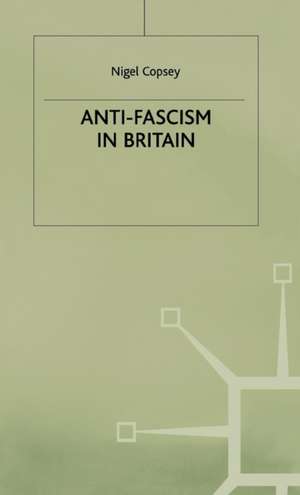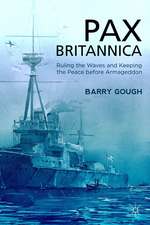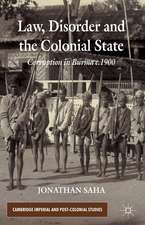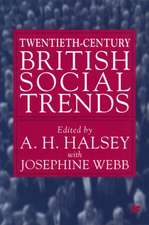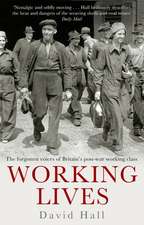Anti-Fascism in Britain
Autor N. Copseyen Limba Engleză Hardback – 9 noi 1999
| Toate formatele și edițiile | Preț | Express |
|---|---|---|
| Hardback (2) | 585.83 lei 39-44 zile | |
| Palgrave Macmillan UK – 9 noi 1999 | 585.83 lei 39-44 zile | |
| Palgrave Macmillan UK – 10 feb 2000 | 643.00 lei 6-8 săpt. |
Preț: 585.83 lei
Preț vechi: 636.77 lei
-8% Nou
Puncte Express: 879
Preț estimativ în valută:
112.10€ • 115.83$ • 93.25£
112.10€ • 115.83$ • 93.25£
Carte tipărită la comandă
Livrare economică 17-22 martie
Preluare comenzi: 021 569.72.76
Specificații
ISBN-13: 9780333696361
ISBN-10: 0333696360
Pagini: 240
Ilustrații: IX, 229 p.
Dimensiuni: 140 x 216 x 18 mm
Greutate: 0 kg
Ediția:2000
Editura: Palgrave Macmillan UK
Colecția Palgrave Macmillan
Locul publicării:London, United Kingdom
ISBN-10: 0333696360
Pagini: 240
Ilustrații: IX, 229 p.
Dimensiuni: 140 x 216 x 18 mm
Greutate: 0 kg
Ediția:2000
Editura: Palgrave Macmillan UK
Colecția Palgrave Macmillan
Locul publicării:London, United Kingdom
Cuprins
Acknowledgements List of Abbreviations Introduction Origins and Development of Anti-fascism 1923-1935 Opposition to British Fascism 1936-1945 'Never Again': Anti-fascism 1946-1966 'The National Front is a Nazi Front!': Opposition to the National Front 1967-1979 Fighting Fascism in the Eighties and Nineties Conclusion Index
Recenzii
'This excellent and well-written book fills a much-needed gap, being the first full-length academic study of an important phenomenon in recent British political history. By emphasising the two traditions of anti-fascism in British society Nigel Copsey has shown the significance of his subject; not only could the direct action favoured by militant anti-fascists bring far more supporters onto the streets than their fascist opponents but 'passive' anti-fascism became a defining aspect of British national culture after the second world war. While the state authorities held the ring between fascists and anti-fascists, public order was maintained with care taken to minimise the loss of civil liberties, even if this meant giving fascists continued licence to criticise immigrant groups and British Jews, provided they were not too abusive.' - Richard C. Thurlow, Department of History, University of Sheffield
'There is a great deal to interest and stimulate students of fascism and the Left in this book.' - Martin Pugh, Times Literary Supplement
'There is a great deal to interest and stimulate students of fascism and the Left in this book.' - Martin Pugh, Times Literary Supplement
Notă biografică
Nigel Copsey is Lecturer in History at the University of Teesside.
